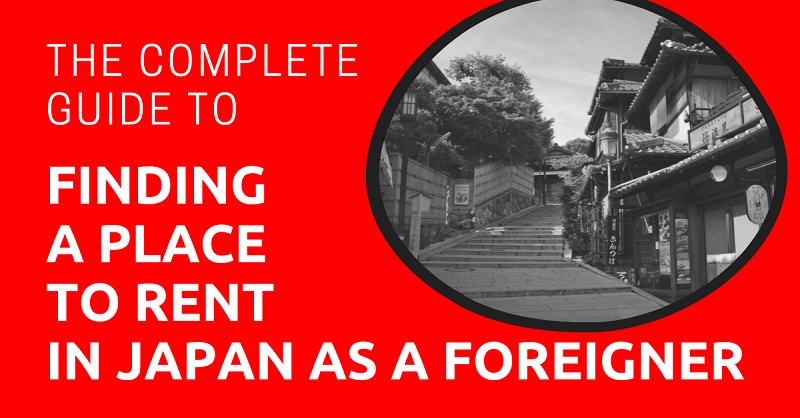
If you intend to live in Japan long term, it is best to be as informed as possible about renting an apartment in this country. I hope to provide a comprehensive guide to this process and cover some must-know information in detail.
Although most, if not all, foreigners who come to work in Japan for a Japanese company from overseas, are typically provided with some housing upon arrival, there are many who choose to move apartments without assistance.
In this guide, I aim to demystify the steps you need to rent successfully, explain the costs and required paperwork, and break down the challenges you may encounter from signing a rental contract to leaving the rental property when you want to move on.
This article will take approximately 19 minutes to read. Don't have the time right now? No worries. You can email the ad-free version of the article to yourself and read it later!
Disclaimer: This article may include links to products or services offered by ExpatDen’s partners, which give us commissions when you click on them. Although this may influence how they appear in the text, we only recommend solutions that we would use in your situation. Read more in our Advertising Disclosure.
Contents
Good to Know Before Renting
This article is for people who are already in Japan.
If you are hired from overseas, you were most likely provided an initial apartment when you moved to Japan on a work visa.
The company that hired you understands that you have no idea how the rental process works.
They will often help as much as possible to set you up with an apartment complex or dormitory with which they have had a business relationship over the years. They will even act as your guarantor, which is required when renting in Japan.
I will talk about this in more detail later on.
Although you may look at places you might want to live while visiting, you cannot apply for a rental as a tourist – as your residence card is necessary for renting.
In addition, it is impossible to change your tourist visa to a work visa while you are in Japan.
Rent Assistance
Many companies in Japan provide their workers with something called “Yachin Hojou”; this is “rent assistance” in English. It is an extra amount of money in your monthly paycheck that covers a portion of your rent; a form of financial aid or support provided to help cover the cost of rent.
You should ask your new job if they provide this, as it could help you decide your budget for your next place. This aid will typically cover up to 10-20% of your total rent. If your rent is 80,000 yen, you may have 20,000 yen extra in your paycheck to offset the cost.
Rental Agency
You cannot call or go to an apartment complex and inquire about rentals in person. Almost all places require an application through a rental agency. It is up to the discretion of that company to rent to you, and they decide this after speaking to the property manager.
Discrimination
Japan is the most racially homogenous developed nation. Unfortunately, because of this, foreigners can face discrimination when renting apartments in Japan.
It is common for foreigners to have rental applications rejected. There are certainly instances where Japanese real estate agents will be hesitant to deal with non-Japanese renters (whether based on language capability or xenophobia).
Sometimes, it is better to ask up front if services are offered to foreigners, though sometimes you may not get a clear answer. You can also look for clues such as a lack of English-speaking representatives or English-friendly websites.
The process can be disheartening if you are rejected multiple times without reason. But remember that it is fear of the unknown and reluctance to face the extra unknowns of renting to a foreigner. It is not personal.
Having a Japanese partner, or active support from the Japanese manager at the company you are working for will certainly hep the process move along easier.
Accommodation Options
The rental market is fairly diverse, offering different accommodations, each with unique features.
Apartment
Apartments in Japan are usually smaller buildings, about two to three stories tall, made from lumber or light-gauge steel. This means the walls are not particularly thick, and you can sometimes hear your neighbor’s daily activities.
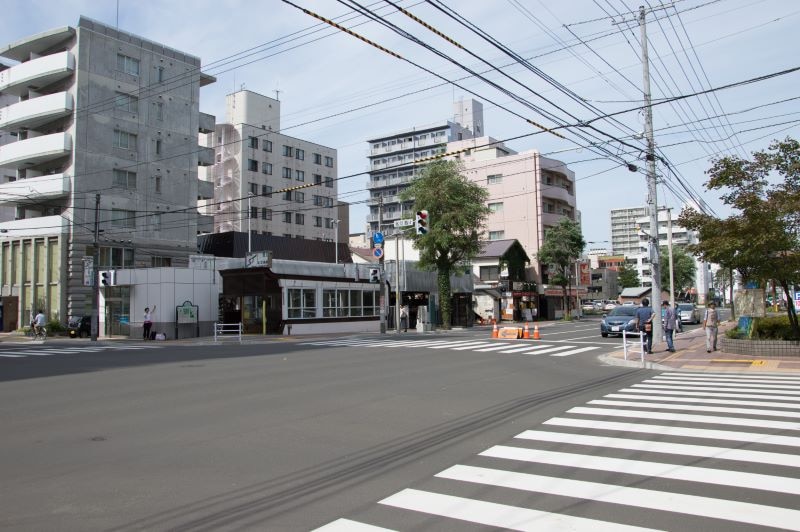
The newer the apartment, the more expensive it is, so you will likely end up renting from an apartment complex built in the 1980s or the 1990’s if you are on a budget.
Mansion
“Mansions”, on the other hand, are highly large-scale, interconnected apartment complexes that can stand over five stories tall. These are mainly constructed from concrete, and the walls are referred to as “RC” walls.
This is a good choice if you want peace and quiet and value your privacy. Many of these mansions offer comfortable living conditions, have a drink machine nearby, are protected by security cameras, and sometimes have a live-in manager who helps tenants on site.
House
Additionally, you can rent an entire house. If you have a family, this may be your best route. Small rental houses (an “ikenya”) are typically older (built in the 1970s – 1990s, have two floors, and are not furnished.
Some of them have been renovated as well. In reality, the rental price can be the same as an apartment in some cases, but just know you will be paying more for utilities like gas, water, and electricity. Especially in 2023, this can put a dent in your pocket, as the cost of living is up dramatically due to the world’s current economic situation.
Shared House and Guest House
I didn’t want to leave both shared houses or guesthouses off this list of options.
These are much easier to rent, with a straightforward rental process with English support, the rooms are fully furnished and the rental agreements are flexible.
Share houses are for longer terms of contract, and as the name suggests, are a social living setting with roommates.
Some more popular companies include Share House 180, Borderless House, First House Interwhao, and others.
Guesthouses are for shorter-term stays and may have private room options with either Western or more traditional Japanese settings. You can find guesthouses in most prefectures of Japan by simply searching online.
However, you should understand that both sharehouses and guesthouses, while cheaper alternatives to working with a rental agency to rent an apartment, have some negative points.
Both will have rules that need to be followed (timed baths, shared washing machines, quiet hours, etc.), they offer less privacy than your own place, and there is an element of risk if you don’t trust your new roommates.
Moreover, you may have problems inviting friends or a partner over to your shared house if that is against the rules.
Rental Terminology
I would like to break down the terminology used to describe the layout of rental properties and explain what to expect from the facilities.
LDK
The L, D, and K abbreviations for rentals stand for living, dining, and kitchen, while the number represents the number of rooms.
A ‘1DK’ refers to an apartment with one separate bedroom and a dining and kitchen area; it is pretty small, but can suffice for a couple with few possessions.
While a ‘1LDK’ is an apartment with one bedroom, and a combined living, dining, and kitchen area; these are often separate spaces.
From here, we have a ‘2DK’, which offers two separate bedrooms and a dining and kitchen area; essentially, an extra bedroom. The size increases with a 2LDK, 3LDK, 4LDK, etc.
Room Sizes (Jou)
Room sizes are interestingly often described using the unit ‘jou’. This is based on the size of a traditional tatami mat – a type of flooring material made from multilayered rice straw that is tightly fastened and compressed.
Many older apartments have a tatami room, and you will want to be careful not to stain them. Replacing them is expensive!
Many people buy special flooring that you can put over tatami mats to protect them. You can just rip up this temporary flooring before you leave, and avoid paying tatami replacement fees.
Where to Search for an Apartment in Japan
There are two primary methods to find a place to rent in Japan: visiting a real estate agency in person or searching for a property online on your own.
Real Estate Agency
While you would think going to a local real estate office, having a consultation, and seeing what is available in your location preference and price range is the easiest method, unfortunately, this is not the case in Japan. If you do not have a Japanese translator and do not speak Japanese, this will be almost impossible to accomplish (even using translation technology).
Unless you are in Tokyo, an English-speaking representative is a rarity, and many landlords require tenants to be able to read the contract before they sign it – in Japanese.
Online Company
Your best bet with minimal Japanese language ability is an online company that provides services specifically for foreigners.
This may include English assistance, pamphlets and contracts in English and a website where you can search with your rental specifications. Some companies with a good reputation include:
Most of these sites offer English services. I personally used UR rental housing, and fount it to be a painless process.
They assigned an English-speaking realtor to me, explained exactly what money I would need for the move, and provided excellent service.
It was my first move in Japan to a new city without the help of my company, and they made it easy to find a reasonably priced apartment.
Other suggestions include a company called SUUMO, which is Japan’s largest rental listing website, although access might be limited to Japanese. You may have to use Google Translate to translate the website automatically.
You can even consider using platforms like OYO LIFE (an iPhone/android application) that provides short-term, fully furnished rentals that do not require a deposit or “key money”(which I will explain later).
Oakhouse is also a popular platform for short-medium term rentals, although it often includes living with roommates.
Of course, only a few online resources are available, so you may want to search for other services in the region you want to live in.
Cost
Choosing where to live is a personal decision, and you may have to factor in things like your work commute, or whether or not you need exciting nightlife.
Still, the differences in rental properties and the cost of living are dramatically different. In rural areas, you can expect about 40,000-60,000 yen a month for a fairly large apartment (I will get into the size of apartments later).
In rural areas, you will have easier access to vegetable markets and a simpler lifestyle, and while public transportation is more limited, the slower pace of life might suit you.
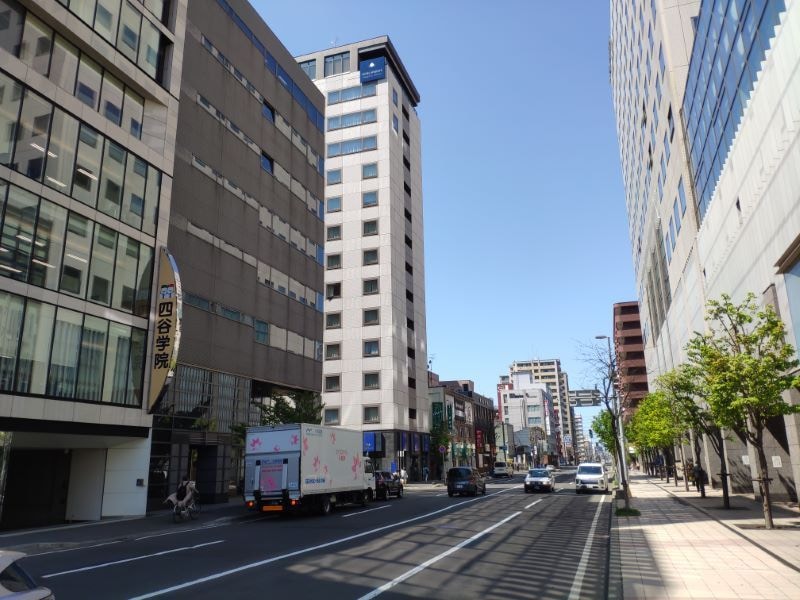
In contrast, your average city apartment in say Osaka or Tokyo can run almost double the cost.
For example, it can cost you 120,000 yen a month to rent a big Hokkaido apartment in with 4 bedrooms, 1 living room, and 1 kitchen in Sapporo. However, for the same amount of money, you would only get a small room in Tokyo.
This depends on the region within the city, but you certainly pay for convenience with the cost of your rent.
Signing Your Rental Contract
Renting an apartment in Japan is expensive. There is no gentle way to phrase it. It will cost more than you expect, so it is best to prepare the funds you need for your move ahead of time.
Contract Duration
The duration of the lease is usually two years. It is sometimes negotiable
After your lease is up, there might be a surprise renewal fee if you want to stay.
Guarantor
You will typically need a Japanese citizen (hoshonin) who is connected to you in some way (friendship, employer, spouse, etc.) to “vouch” for you in case trouble arises during your rental.
The hoshonin must also have a salary.
If by some chance you do not pay your rent, it will default to this person.
However, more recently, for a fee, you can pay a guarantor company a yearly fee to act as your guarantor.
The annual fee depends on the region, your salary, and other factors. You may need to pay around half a month’s rent for their service each year.
Security Deposit
The costs include the security deposit (1-3 month’s rent and it depends on the agency whether or not you get a portion of back), “key money” (also known as “reikin”, or a “bowing fee/thank you fee” is about 1-2 month’s of rent – it is non-refundable), real estate brokerage fees (1 month of rent plus 10% consumption tax), and a guarantor fee (this varies upon area and lease agreement).
Documents
You will want to have these several important documents on hand to rent. Firstly, you will need your passport and residence card.
If you’re working or studying, you must provide a contract or certificate of enrolment (student ID/admission letter will suffice).
You will also need proof of income (a monthly pay slip from your job, or your employment contract with your salary) to ensure you can afford to rent the property. A Japanese bank account is also required for your monthly rent payment. It is taken out of your bank account on a set day of each month.
Moving Cost
While it depends on the location, size, and type of apartment, on average, it will cost you around 800,000 JPY (5,400 USD) to move successfully.
This includes 1-month or rent, 2 month’s of the rent value for the security deposit, 1 month for the “key money”, 1 month for the real estate broker plus 10% consumption tax, and any guarantor fees. This is what I would suggest you anticipate.
If you have to move furniture, appliances, and boxes to your new apartment, please add another 150,000 JPY for the cost of a moving company (although this also varies).
Setting up Your Utilities
Your gas company is pre-decided by the building manager, who provides you with electricity and water. When you move in, the building manager will have them turned on.
Your internet, however, is your choice. It takes a long time to set up your internet in a new apartment, as the companies are limited and extremely busy around the moving season (March, April, May).
You will want to call beforehand and arrange for someone to hook up your internet before you move (at least 2 weeks before your contract is decided).
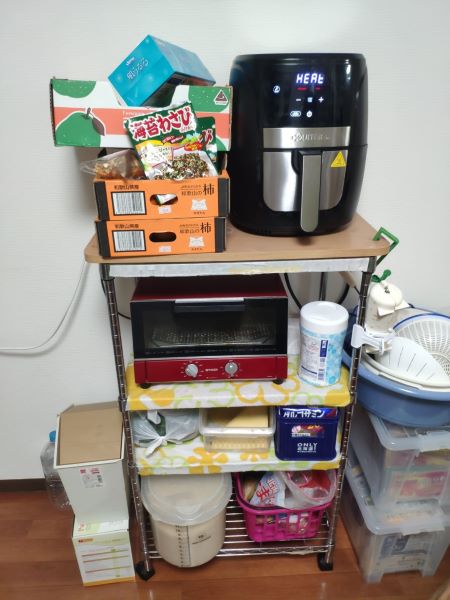
With the recent state of the economy in 2023, utilities like gas and electricity are substantially more expensive. I pay roughly 14,000 JPY monthly for electricity, 8,000 JPY for gas, and 7,000 JPY for water services for a family of two.
These can differ depending on the size of the apartment and your personal usage.
Rules of Living in an Apartment in Japan
There are some Japan-specific procedures that may be better to know in advance when living in an apartment.
Quiet Hours
Of course noise should be minimized, especially during the night and early morning hours. But you might be held to an even higher standard than usual.
Tenants in apartments will not hesitate to complain about a foreigner’s behavior while excusing (and not reporting) a Japanese neighbor for the same thing.
This is not always the case, but as a foreigner in an apartment complex, everyone in the building will by default of your presence being a rarity, know that you live there.
Garbage Disposal
Each city has its own rules about separating and removing your garbage. You will need to buy city-regulated garbage bags, which are expensive. It can cost around 80 yen to 120 yen per bag.
You can buy them at any supermarket. If you don’t use these bags, they will not collect your garbage.
The garbage is typically separated into burnable garbage (which you use the bags for), plastic, glass bottles, tin/metal, and something called “soudai gomi” (more oversized items like appliances that cannot be easily thrown away).
You will have to take these to a recycling center or request them to be picked up by appointment. You must also adhere to that area’s specific days to remove the garbage.
Burnable garbage is usually taken out twice a week, and recyclables are typically once every two weeks on a specific day. There will be a caged area in your apartment complex or a designated area where you leave it.
Repair Fees and Leaving an Apartment
When you decide to leave your apartment in Japan, a comprehensive inspection of the property occurs. The landlord or the property management company will come into your apartment and check for damage with an eye for detail.
Damages can range from minor issues such as wall scratches or carpet stains to serious problems and sizeable structural damage.
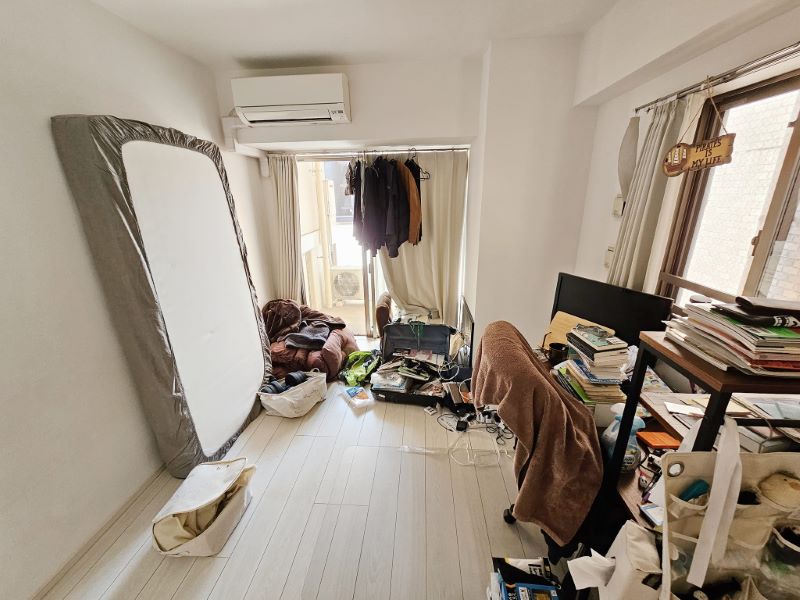
The cost of repairing these damages is generally deducted from your security deposit.
It’s also common for the landlord to charge a cleaning fee, which has nothing to do with how clean the apartment is. Whether you clean it or not, they will charge this fee.
They may even choose not to clean the apartment and pocket your money; it is just a way for landlords to make more money on your way out. It is an unpleasant reality of moving from one place to another.
Common Scams When Leaving the Property
While most landlords are ethical, these are scams to be aware of when leaving a rental property.
Some landlords may exaggerate damages and overcharge for repair costs. One common example is wallpaper.
If a wallpaper section has a small scratch, the landlord may chage for the entire wall. This is often illegal, and you should be aware of this.
Another common scam is the unjust withholding of a security deposit. The landlord refuses to provide you with your deposit back and makes false claims as to why.
You have some recourse if this happens: you can file a claim to a city office of fraud. Whether or not you are successful will depend on your Japanese ability to explain tenant law rights – which you must research yourself.
It is sometimes less stressful to take the loss and move on to save time and energy.
Make sure to read the fine print in your contract because some leases have early termination fees. For example, if you leave before your two-year lease has ended.
Now, on to You
I hope that this guide has in some way been helpful to you.
Renting can be complicated in a foreign country. It can be even more challenging in Japan because of language barriers and culture. It is undoubtedly more expensive and difficult for many expats to find a place to rent in Japan than for Japanese citizens.
If it’s your first time in Japan, it’s best to ask your company to help you find a rental. Once you are used to the country, you can find and rent on your own.






